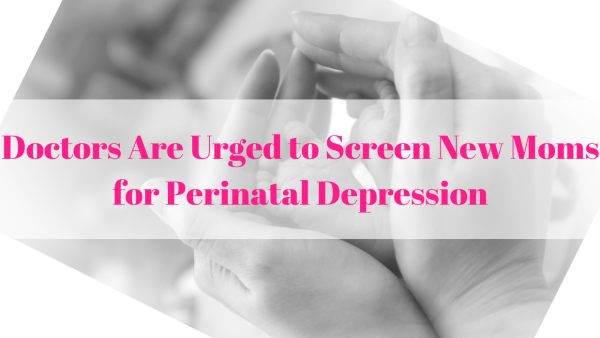Congratulations! You just found out you're going to be a mother. You are ecstatic, excited and scared all at the same time. It is a wonderful experience to become a new mother but unfortunately behind that joy can sometimes be pain. We are all familiar with the term depression but not so much perinatal depression. Perinatal depression is a combination of prenatal depression before the baby’s born, and postpartum depression after the baby’s born.
This week the American Academy of Pediatrics released a new policy statement urging pediatricians to "incorporate recognition and management of perinatal depression into pediatric practice." This policy makes a lot of sense because when you take your baby for an annual check-up the pediatrician may be able to recognize a mother who is in distress and may need emotional support or counseling. If the mother is not ok, neither is the child. According to the American Academy of Pediatrics, an estimated 50 percent of women who are depressed during and after pregnancy are undiagnosed and untreated, according to research. I am not exactly sure what the screening will look like but perhaps it will be in the form of a questionnaire, asking numerous questions about the mother's mental state. The only hiccup with this is that many mothers, myself included may have an issue with revealing too much information to their child's pediatrician. Many moms have a hard time asking for help and assume it is normal to take care of everyone else and neglect themselves.
With the surge of social media, many moms including celebrity moms are being more outspoken about their perinatal depression and the struggles mothers face on a daily basis. Either way, this is a step in the right direction. The American Academy of Pediatrics recognizes there is a problem and they are trying to do something about it. To help you recognize depression during pregnancy, it’s worth talking with your doctor about any of these symptoms:
1)frequent crying or weepiness
2)fatigue or low energy
3)changes in appetite
4)loss of enjoyment in once pleasurable activities
5)increased anxiety
6)trouble feeling connected to your developing baby (called poor fetal attachment)
Perinatal depression can be a dark and lonely place and as a new mom, your life slowly begins to change along with your new body. If you dont want to talk to your doctor find a support group. It is important to keep positive family and friends around you that have experienced what you may be going through. Engage in activities that make you happy and embrace your new mom life.
A woman is the rock of her home and if we go down we have the power to take our entire family with us. It is important to make time for yourself on a daily basis. You must continue to do your hair, maintain your nails if that's what you were doing before, remain physically active, go to the movies and long walks whatever you need to do to keep sane just do it. Remember we must learn to take care of ourselves first!
Ref:
https://www.healthline.com/
https://www.mother.ly/


